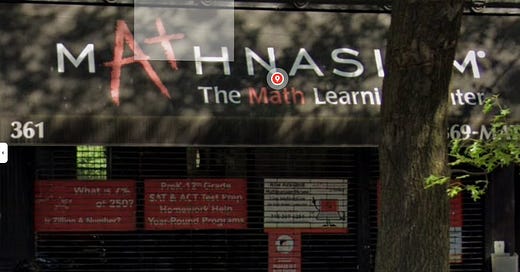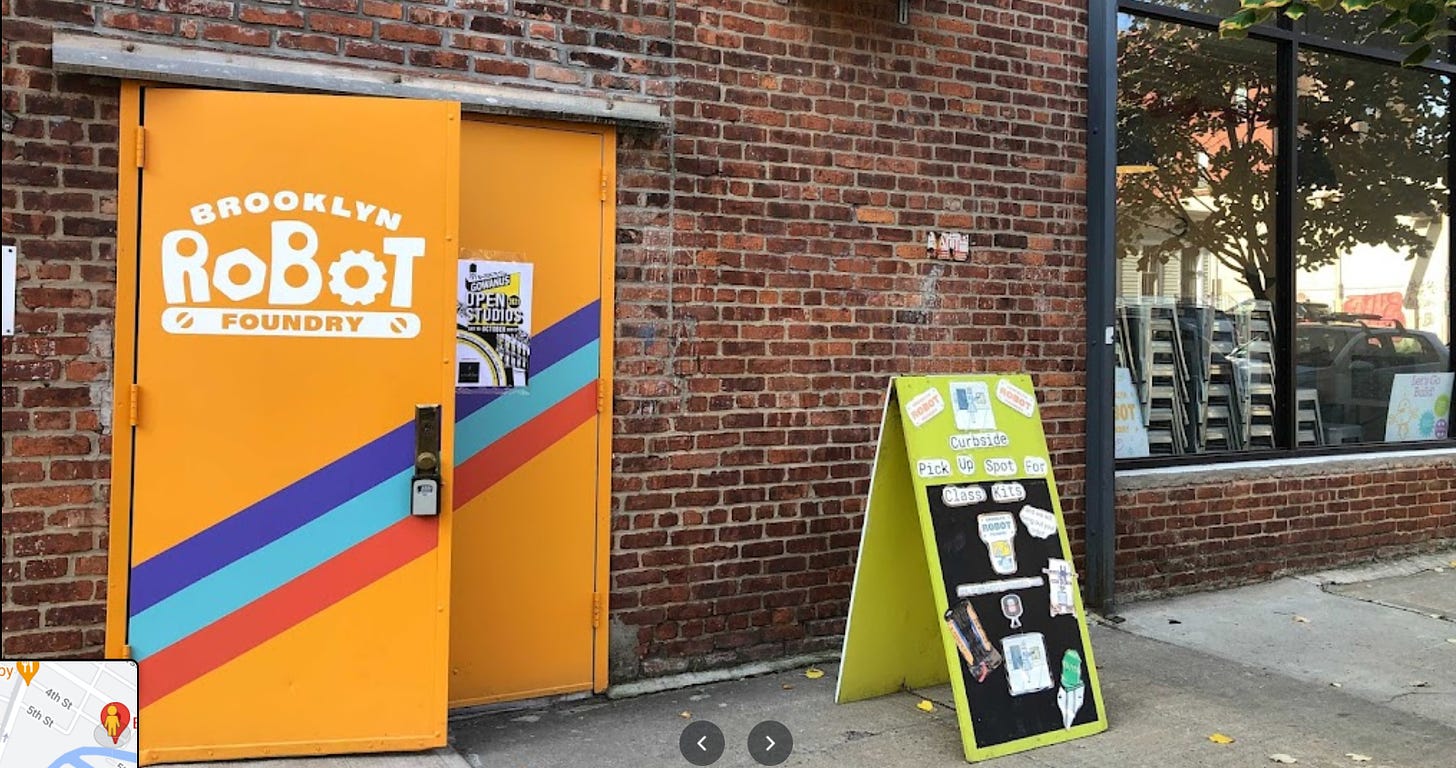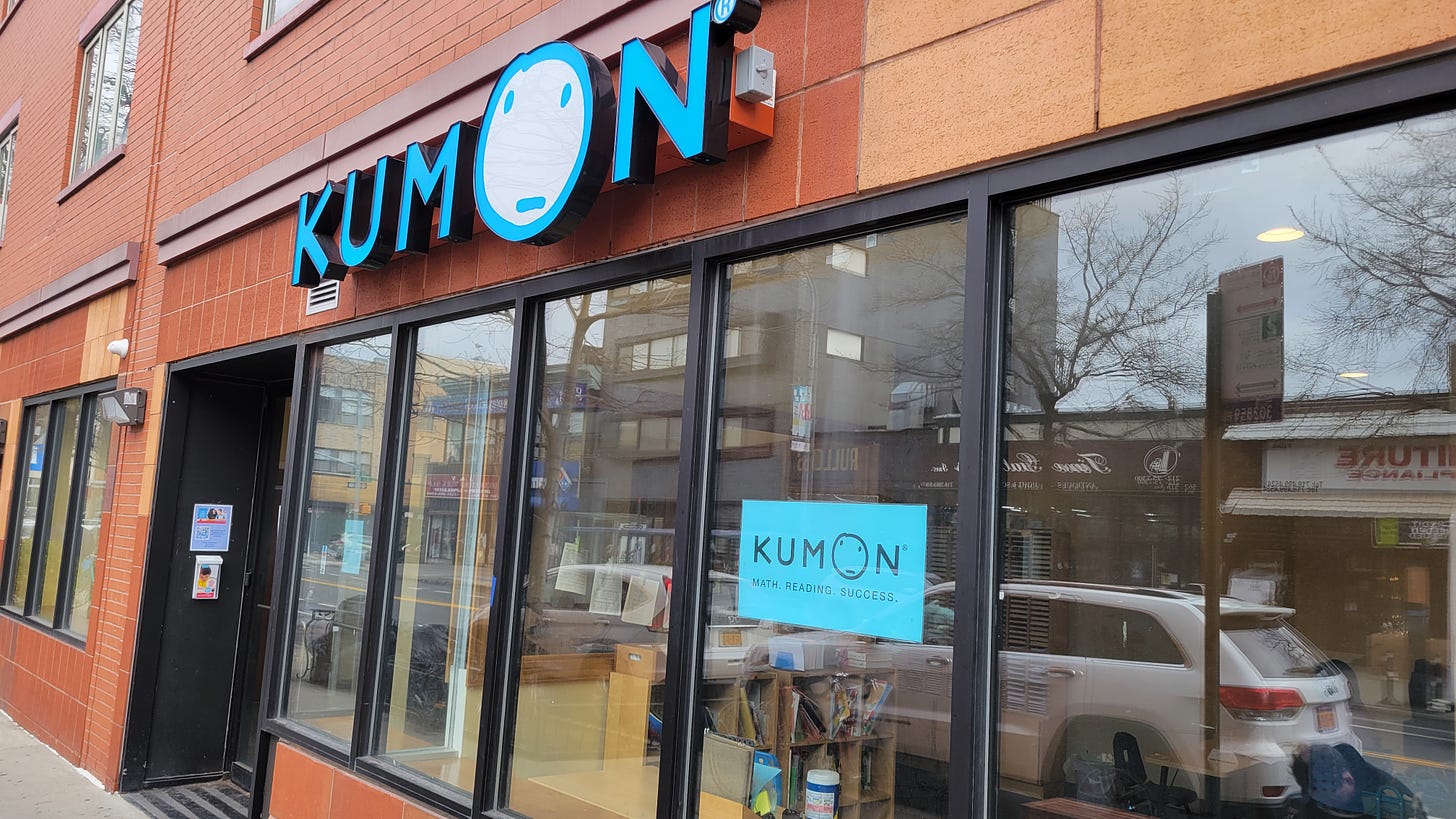I don’t have access to this San Francisco Chronicle article, but it seems the war over the math curriculum in the school district there continues. And one of the flashpoints remains the decision to forbid 8th graders from taking algebra, which in turn makes it difficult to complete calculus in high school.
The whole suite of “equity” reforms in K-12 education seems terribly counterproductive and wrongheaded to me, but removing advanced classes is just straightforwardly destructive. Rich kids will still get whatever instruction they want! Here’s a few of the storefronts in my neighborhood, Park Slope, famous for its affluent liberal helicopter parents.
There are many more. This neighborhood, this borough, this city, and this country are festooned with for-profit educational services, much of them very expensive indeed.
Now, I’m on record as saying that I doubt that these services move the needle much in terms of relative quantitative metrics. They can’t make a kid who’s not talented at math talented; they can’t make a 50th percentile kid a 90th percentile kid. If you give a population of kids access to the same material, there will always be a distribution of ability among them, and the place of students within that distribution is very sticky over the course of life, likely owing to some kind of inherent or intrinsic academic talent. But this whole question with algebra and calculus classes is about access to material. If you’re artificially cutting off access to material, you can’t even assess how well students might perform on it relative to each other. A student might be more talented than another, but if the former is denied instruction in algebra while the latter gets it, that talent will never be given an opportunity to assert itself.
Rich parents can always send their kids to private schools that will teach advanced material, or they can send their kids to the public schools and supplement their learning there with for-profit classes or tutoring in higher-level mathematics. One way or the other, rich kids are not going to be denied that instruction, especially in the Bay Area. Cutting out algebra, and in doing so making calculus a much less pragmatically achievable goal, is a perfect scenario for leaving poorer kids behind! And this is such a glaringly obvious dynamic that I’m amazed it’s being ignored, even in the realm of “equity” education in which I have such little faith. What is the theory here? Yes, you can keep some portion of your more talented students from taking algebra and in doing so pulling away from your struggling students. But your struggling students won’t just be competing with the students who you can exclude from algebra in this way, and won’t even really close the gap with them anyway. Meanwhile your not-rich more-talented students will either get access to the instruction they need in college, in which case you’ve merely delayed their advantage, or they’ll be permanently behind their peers who get instruction at the appropriate age. It’s madness.
I wrote a book about these issues and laid out my vision of the problem and humane, progressive ways to address them. But let me assure you that, whatever the best way forward is, artificially restricting the opportunity of the students on the top will never truly help those on the bottom.









As a STEM professor at a large public university, I could not agree more. Limiting access to knowledge in the name of "equity" is a fantastically stupid idea that will only hurt the kids it is (wrongheadedly) intended to help.
Yep. I actually pulled my kid out of a public middle school when they stopped offering Algebra in 8th grade and sent him to Catholic school. They’re not hurting anyone but the kids who really need a chance by doing this shit. My kids already have a chance.